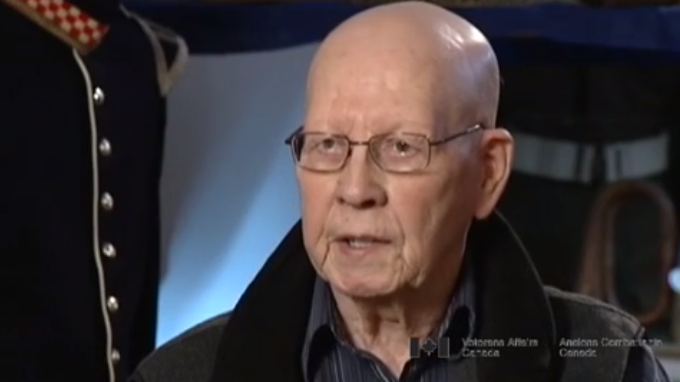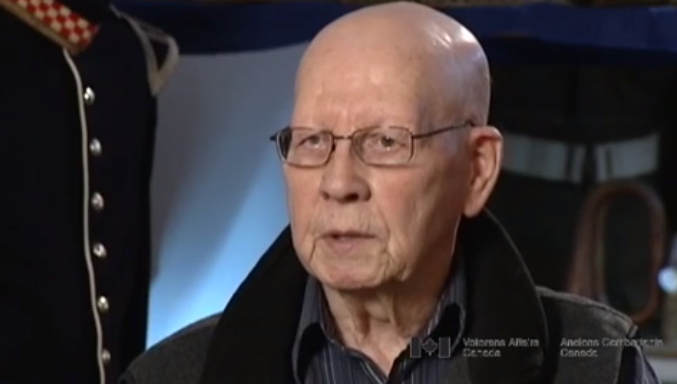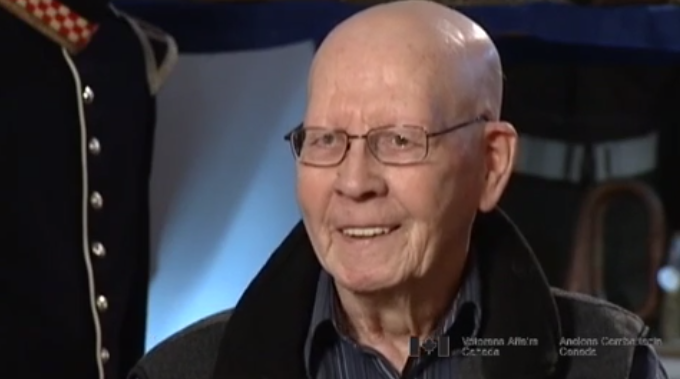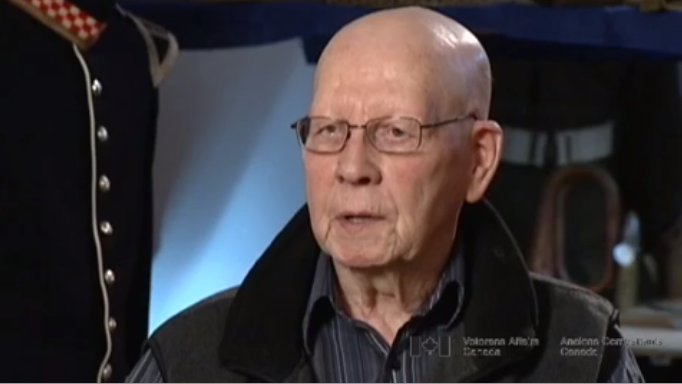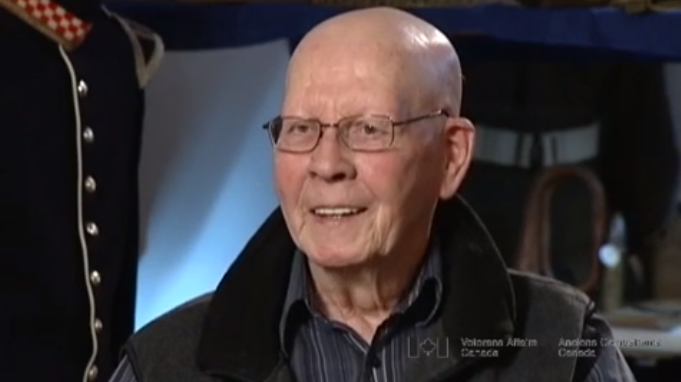Pick Up No Prisoners
Heroes Remember
Pick Up No Prisoners
Transcript
Description
Mr. Guthrie explains why they would not pick up enemy mariners from the water.
Peter Guthrie
Mr. Guthrie was born in 1925, in Scotland to a family of eleven children, five of which were in the army, as was his father who served in the First World War. After trying to get into the air force, Mr. Guthrie enlisted in the navy where he was designated a cook, but also took on other jobs, such as steering, manning the guns, and radio. His first ship was a minesweeper, which swept the mines laid in the English Channel and the North Sea by the Germans. The second ship he was on travelled to Burma patrolling the rivers for Japanese. They also picked up and dropped off special service troops in the Burmese jungles. It was a dangerous route, as sometimes the boat would travel within 20 miles behind enemy lines. After the war, Mr. Guthrie worked North of Scotland recovering torpedoes for the air force and looked after air force rescue crafts for four months. Soon after, Mr. Guthrie was married, and he and his wife moved to Canada in 1951 where they settled in Regina, Saskatchewan. Mr. Guthrie has been a vital member of the Royal Canadian Legion for 47 years, serving as chairman of the War Graves Committee, and doing his part to help others in need.
Meta Data
- Medium:
- Video
- Owner:
- Veterans Affairs Canada
- Duration:
- 01:08
- Person Interviewed:
- Peter Guthrie
- War, Conflict or Mission:
- Second World War
- Location/Theatre:
- Burma
- Branch:
- Navy
- Units/Ship:
- HMS Veletta
- Occupation:
- Cook
Related Videos
- Date modified:



